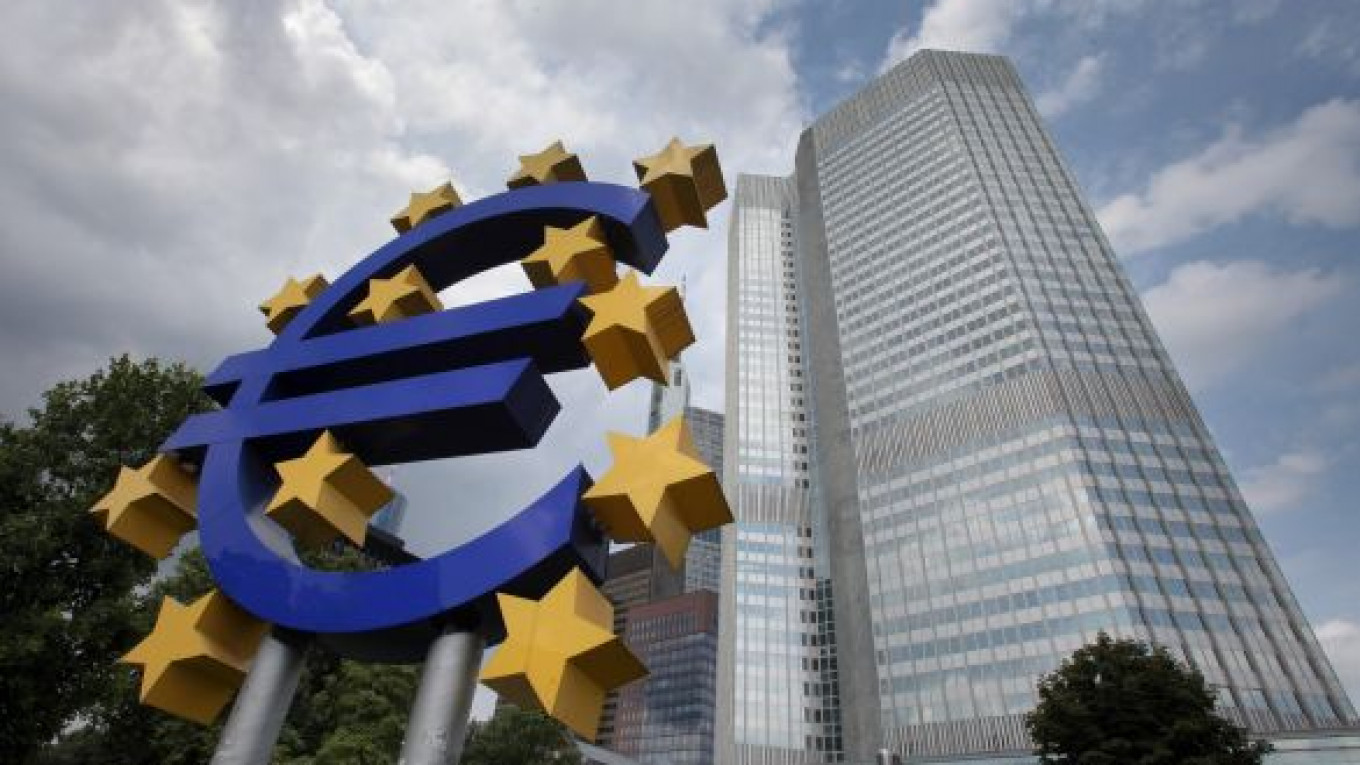Finance Minister Alexei Kudrin on Friday gave his stamp of approval to efforts to stabilize the euro zone since Greece's debt crisis, saying Moscow continued to invest its huge reserves in euro-denominated assets.
"The Russian government judges the euro's prospects to be stable. We continue to invest in bonds denominated in euros," Kudrin told a news conference with his German counterpart, Wolfgang Schaeuble.
"Appropriate measures have now been taken to stabilize the situation in the euro zone and in the euro market," Kudrin said.
Russia has the world's third-biggest gold and foreign currency reserves, worth some $475 billion. The forex part of the reserves is kept in 47 percent dollars, 41 percent euros and 10 percent pounds.
The Finance Ministry and Central Bank have repeatedly expressed confidence in the euro for the long term after sticking with investments in the currency at the height of a crisis of investor confidence earlier this year.
The single European currency is trading at $1.27, about 6 percent above a four-year low of just under $1.19 set in early June, though there have been renewed tensions this month around Ireland and other economies struggling with high debt and poor growth.
Earlier last week, Schaeuble said the euro was trading in a "reasonable range." He said Friday that the euro zone had succeeded in gaining back the trust of investors.
"With joint effort … we have succeeded in winning back the trust of the market," he said through a translator after meeting Kudrin in Moscow.
Kudrin and Schaeuble said they had also discussed the need for greater representation of emerging markets at the International Monetary Fund, the commitments of the Group of 20 and Russia's long-running bid to join the World Trade Organization.
A Message from The Moscow Times:
Dear readers,
We are facing unprecedented challenges. Russia's Prosecutor General's Office has designated The Moscow Times as an "undesirable" organization, criminalizing our work and putting our staff at risk of prosecution. This follows our earlier unjust labeling as a "foreign agent."
These actions are direct attempts to silence independent journalism in Russia. The authorities claim our work "discredits the decisions of the Russian leadership." We see things differently: we strive to provide accurate, unbiased reporting on Russia.
We, the journalists of The Moscow Times, refuse to be silenced. But to continue our work, we need your help.
Your support, no matter how small, makes a world of difference. If you can, please support us monthly starting from just $2. It's quick to set up, and every contribution makes a significant impact.
By supporting The Moscow Times, you're defending open, independent journalism in the face of repression. Thank you for standing with us.
Remind me later.






